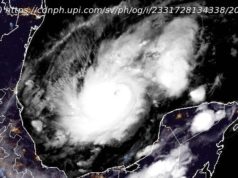President tells China International Import Expo that China’s economy is ‘big as an ocean’ and can’t be overwhelmedComments seek to calm jitters over stand-off with US and signs US$12 trillion economy is losing momentum
Chinese President Xi Jinping sought on Monday to reassure the international community that the country’s economy remains sound, even though there are strong signs that policymakers are getting nervous amid the escalating trade war with the US.
In his speech opening the China International Import Expo in Shanghai, Xi admitted that China’s economy was facing “growing uncertainties”, but insisted that the economy was big enough to weather the storm.
“The Chinese economy is an ocean, not a small pond. There are times when the sea is calm, and there are storms and torrents. Storms and torrents can flood a small pond, but they can’t overwhelm the sea,” Xi said.
“After numerous storms and torrents, the sea is still there! After more than 5,000 years of difficulties and struggles, China is here! Looking into the future, China will always be here!”
The idea that China is big and strong enough to absorb external shocks is an idea Xi has been promoting in recent weeks.
Xi has stressed that China can and should become more “self-reliant” to handle the increasingly hostile external environment, particularly the impact of the trade war with the US.
China’s economy grew 6.5 per cent in the third quarter, the slowest pace since early 2009.
China’s growth is likely to slow further in the coming months as the ongoing trade war takes its toll.
However, Xi said Chinese economic activity was well within a “reasonable range” and a growth rate of 6.5 per cent still “put China among the world’s best performers”.
Xi added that the Chinese government is taking steps to solve economic challenges and “our efforts are already paying off”.
“With regard to the prospects for China’s economic development, we can all be optimistic,” Xi continued. “The fundamentals of China’s healthy and stable economic development have not changed, and the conditions for supporting high-quality development have not changed.
“The overall momentum of long-term stability has not changed.”
Concerns about China’s economic health have been on the rise in recent months with the US$12 trillion economy quickly losing steam and China’s stock markets continuing to decline.
Shanghai stocks have fallen about a quarter since the start of the year, hovering at a 10-year low.
The yuan has plunged 10 per cent since April this year, hitting its weakest level since May 2008 late last week. Meanwhile, corporate bond defaults are at a record high this year amid falling profits and rising financing costs.
China has refrained from rolling out a major stimulus package to lift its sagging economy but the Chinese leadership has tweaked its priorities to lean further towards bolstering growth.
The top leadership outlined a new game plan for the private economy and the stock market last week, signalling a big shift in policies.
The Communist Party’s Politburo, the 25-member supreme policymaking body, concluded last Wednesday that there was “growing downward pressure” on the economy with “profound changes” in the external environment – the first time that the leadership has shown public concern about China’s slowing economic growth since the trade war with the US began over the summer.
“The politburo meeting held last week suggests that policy now is close to a U-turn,” analysts at Macquarie led by its chief China economist Larry Hu wrote in a note published on Monday.
“Compared with the meeting in the last quarter, the latest meeting removed the phrases on property and deleveraging… it does imply that they are ready to make the change if things get worse.”
Chris Leung, an economist at DBS, said China’s leaders had been trying to boost public confidence in recent weeks because overall sentiment has become pessimistic.
“I think the speech [by Xi] today focuses on China being open,” said Leung, referring to the long-standing concerns the US and Europe have expressed about unfair trade practices.
“The trade war has already made an indirect impact on China stocks, and property market prices have also retreated. Long-term investment has been put on hold. The big question that everybody is asking now is what else can the leadership do [to steady the economy]?”






